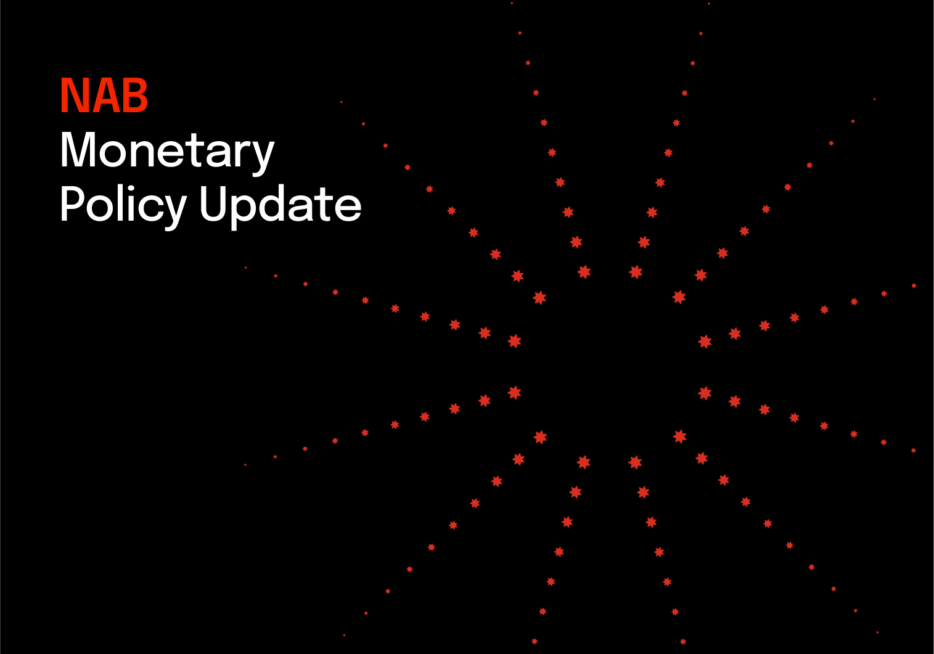RBA surprises with a hold, NAB still sees cuts in August, November and now February


Insight
NAB Business Survey suggests non-mining recovery is broadening, and bolstering confidence despite global uncertainties.

The latest Survey provides strong evidence that the Australian business environment has not only weathered global uncertainties, but appears to have strengthened. There are also signs that the non-mining recovery is becoming a little more broad-based. Consequently, our outlook for the economy remains fundamentally unchanged, with no more cash rate cuts expected, although recent statements from the RBA reinforced the point that were the non-mining sector to show any signs of weakening, lower inflation and AUD strength has increased the RBA’s willingness to lower rates.
NAB Business Survey suggests non-mining recovery is broadening, and bolstering confidence despite global uncertainties.
The NAB Monthly Business Survey produced a strong result in March. A jump in both business conditions and confidence this month provides more assurance that the Australian economy is weathering the global challenges well, and is successfully transitioning through the end of the mining boom. Business conditions lifted to their equal highest level since 2008, while improvements are becoming more broad-based across the economy as the recovery gains traction.
“The lift in business conditions to these levels not only suggests that Australia is withstanding the uncertainty offshore, but that the recovery in the non-mining sectors of the economy have in fact stepped up a gear this month” said Mr Alan Oster, NAB Chief Economist. Overall business conditions rose by 4 points to +12 index points in March, above the long-run average of +5, and its highest level since 2008. This included improvement in all three components (trade, profit and employment).
According to Mr Oster, “it is particularly encouraging to see the employment index point towards ongoing strength in the labour market, supported by signs the recovery is broadening into previous trouble spots such as manufacturing”. By industry, service industries remain the best performers, although construction also closed the gap in March, manufacturing is looking more upbeat, and transport appears to be responding positively to lower fuel prices – in contrast, mining conditions remain extremely weak and retail was disappointing.
The better business environment (and some soothing of financial market concerns) has helped to lift business confidence as well. The business confidence index increased 3 points in March (to +6), which is consistent with the long-run average, and an encouraging result given the overall global context. Mr Oster notes that, “the lift in business confidence suggests a lower risks of contagion from global uncertainty, but also provides some assurance that gains in conditions will be sustainable”.
Firms’ were also reporting a fall in spare capacity in March. A fall in spare capacity points to further improvement in the underlying health of the economy. “Tighter capacity, good profitability and improving confidence levels all raise the prospects for a ramping up of business spending and employment ahead”, according to Mr Oster. However, some of the other leading indicators from the survey – such as forward orders – were a little less encouraging.
Following from these survey results, evidence of further strength in non-mining means we have not fundamentally changed our view of the Australian economy outlook. Consequently, we have maintained our expectation for the RBA to keep the interest rate on hold for an extended period. However, with inflation remaining low and the AUD drifting higher, the RBA has expressed a willingness to cut rates should the non-mining sector recovery exhibit signs of faltering – albeit there is no evidence of that yet.
See the full report for details.
Also available:
© National Australia Bank Limited. ABN 12 004 044 937 AFSL and Australian Credit Licence 230686.